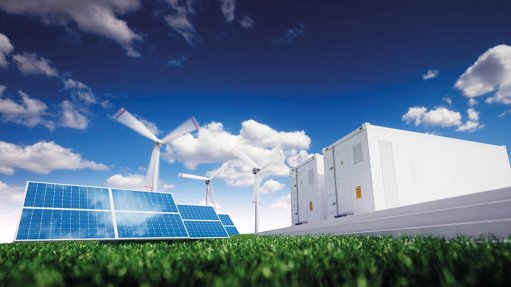
READY, SET, GO
Mlaba says local green hydrogen projects should be accelerated to achieve net-zero emissions by 2050 and to avoid potential tax penalties
Photo by: Petmal
Amid load-shedding, and a reliance on diesel-fired, open-cycle gas turbine power stations being economically unviable, South Africa’s efforts to build a green hydrogen economy should be accelerated, says National Society of Black Engineers (NSBE) president Mdu Mlaba.
Green hydrogen does not produce any greenhouse-gas emissions and is expected to replace natural gas on a large scale in about 15 years’ time as the technology advances and becomes more cost effective.
South Africa’s moving away from its reliance on fossil fuels is necessary to achieve net-zero emissions by 2050, he adds.
Mlaba notes that, while renewable energy should eventually replace natural gas, this process cannot happen concurrently, owing to renewable energy being unreliable for baseload supply.
However, he says complementing green hydrogen with renewable energy will allow for uninterrupted and responsive power supply to the grid.
In September last year, Cabinet approved the Hydrogen Society Roadmap for South Africa, which was officially launched in February by Higher Education, Science and Innovation Minister Dr Blade Nzimande.
The roadmap outlines the future of green hydrogen by trying to understand its value chain and how its flexibility enables it to play a role in all sectors of South Africa’s economy.
It also outlines methods of green hydrogen production, storage, transportation and technology innovations required to lower the cost of green hydrogen projects, says Mlaba.
The roadmap references the systematic and structural changes required to build a green hydrogen economy, such as converting local coal-fired power stations to natural gas as a primary source of energy, which, in turn, will reduce the country’s carbon footprint.
“South Africa cannot afford to renege on commitments made under the 2015 Paris Agreement. The European Union and the UK are South Africa's biggest trading partners by revenue and are also signatories to the Paris Agreement.
“They intend to start implementing carbon border tax penalties from next year and if South Africa does not show commitment to shifting away from fossil fuels, the country may face serious economic repercussions,” Mlaba points out.
The NSBE is actively communicating with its members about South Africa’s readiness to kickstart the process of rolling out a green hydrogen ecosystem to activate wider interests.
“We have plans in place to ensure that the NSBE is ready to contribute its technical skills to uplift the skills level required to successfully roll out green hydrogen technology and projects.”
The NSBE has a membership database of experienced engineers available to help upskill young engineers and artisans for green hydrogen projects.